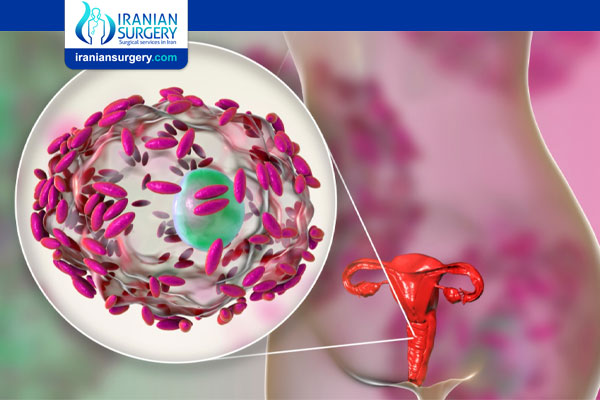Bacterial Vaginosis
Bacterial Vaginosis
What Is Bacterial Vaginosis?
Bacterial vaginosis (BV) is an infection of the vagina. It results from a change in the normal balance of vaginal bacteria. BV usually doesn't cause any other health problems. But it can lead to issues, especially when you're pregnant or trying to get pregnant.
Bacterial Vaginosis Symptoms
About half of the time, women with BV have no symptoms. But they can include:
. Burning feeling when you pee
. Itching
. Thin white, gray, or green discharge
It isn’t the same as a yeast infection. Those often have a thick white discharge that doesn’t smell.
When to See a Doctor About BV
Because BV symptoms can look like those from other infections, it’s important to find out the cause. See your doctor if you:
. Have a new vaginal discharge along with a smell or a fever
. Have more than one intimate partner or a new partner (You might need to be checked for a sexually transmitted disease.)
. Used an over-the-counter medicine for a yeast infection but still have symptoms
What Causes Bacterial Vaginosis
A type of bacteria called lactobacillus keeps your vagina slightly acidic so bad bacteria don't grow well. If your lactobacillus levels drop, more bad bacteria move in, and you get BV.
Bacterial Vaginosis Risk Factors
Any woman can get BV, but your risks are higher if you:
. Smoke
. Are sexually active
. Douche
Douching upsets the natural balance of bacteria. So can scented soaps, bubble baths, and vaginal deodorants. A new sex partner, or having more than one, makes it more likely that you'll get BV. It isn’t clear why, but women who have female partners are most at risk. You can get BV from oral and anal sex.
The IUD birth control device, which fits inside your uterus, has been linked to BV, especially if you have irregular bleeding. But it isn’t clear whether it’s a direct cause. You can’t get vaginal infections like BV from swimming pools or public toilet seats.
Bacterial Vaginosis Diagnosis
The doctor will:
. Ask about your medical history
. Do an overall physical exam
. Do a pelvic exam
. Check your vagina’s pH or acidity level
. Take a sample of discharge from your vagina to look for cells covered with bacteria
Bacterial Vaginosis Treatment
The doctor can prescribe antibiotics (metronidazole, clindamycin, tinidazole) to treat BV. This could be a tablet you take by mouth or a cream or gel you put into your vagina. You'll need to take most treatments for 5 to 7 days. Finish all your medicine, even if the symptoms go away. If you stop early, the infection could come back.
Since BV can be spread through sex, don’t have sexual contact until you're done taking your medicine and your symptoms are gone. If your partner is another woman, they may want to see their doctor to find out if they need treatment. Even after BV is treated and goes away, it often returns. If that happens, you'll probably need to take antibiotics again for a longer time.
If you use an IUD and BV keeps coming back (recurrent BV), you may want to talk to your doctor about a different type of birth control.
Bacterial Vaginosis Complications
Bacterial vaginosis has been tied to a higher risk of other health problems, including:
. A bacterial infection, if you have a hysterectomy or other surgery on your female organs while you have BV
. A premature or low birth weight baby
. A sexually transmitted disease like herpes, chlamydia, or gonorrhea, or passing HIV to your partner
. Less success with fertility treatments like in vitro fertilization (IVF)
. Pelvic inflammatory disease (PID), an infection of your uterus, fallopian tubes, and ovaries
Bacterial Vaginosis Prevention
To lower your chances of getting BV, take these steps:
. Clean sex toys after every use.
. Don’t douche.
. Get tested for sexually transmitted diseases, and make sure your sex partners are tested.
. Limit your number of sex partners.
. If your partner is male, put a condom on their penis before it touches your vagina, mouth, or anus.
. Use only water or mild soap to wash your genitals.
. Wipe from front to back after you use the bathroom.
About Iranian Surgery
Iranian surgery is an online medical tourism platform where you can find the best gynecologists and STD specialists in Iran. The price of bacterial vaginosis treatment in Iran can vary according to each individual’s case and will be determined by an in-person assessment with the doctor.
For more information about the cost of bacterial vaginosis treatment in Iran and to schedule an appointment in advance, you can contact Iranian Surgery consultants via WhatsApp number 0098 901 929 0946. This service is completely free.
Source:
https://www.webmd.com/women/guide/what-is-bacterial-vaginosis


